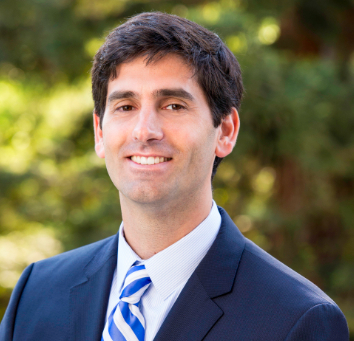Speaker: Lisa Marie Knowlton, MD, Assistant Professor of Surgery, General Surgery, Stanford University.
Talk Title: “Understanding Patient-Level Facilitators and Barriers of California Emergency Medicaid Programs”
Bio: Dr. Knowlton is a trauma and critical care surgeon and NIH funded public health researcher whose focus is on improving access to and quality of care for trauma and surgical patients. She obtained her medical degree at McGill University and completed her general surgery residency at the University of British Columbia in Vancouver, Canada. Her desire to understand varied healthcare systems and develop solutions for vulnerable surgical populations led her to obtain an M.P.H. at the Harvard T.H. Chan School of Public Health and complete a research fellowship at the Harvard Humanitarian Initiative. Most recently, she trained as a Surgical Critical Care fellow at Stanford University Medical Center and joined the faculty as an Assistant Professor of Surgery in early 2018.
Dr. Knowlton’s research focuses on improving health equity, addressing barriers in access to care and reducing disparities among vulnerable surgical populations, including underinsured trauma patients. She is also investigating the financial burden that injury imposes upon both patients and hospitals, with the goal of finding economically sustainable strategies for ensuring best outcomes among trauma patients. These include the study of emergency Medicaid programs at the state and national level. Dr. Knowlton’s work has been funded by the American College of Surgeons (the 17th C. James Carrico Faculty Research Fellowship), the American Association for the Surgery of Trauma (AAST) and the NIH. She has received an R21 by the National Institute on Minority Health and Health Disparities, and most recently an R01 for her work (2023-2028). Dr. Knowlton is board certified by the American Board of Surgery and the Royal College of Physicians and Surgeons of Canada. She is a member of the AAST Diversity and Inclusion and Healthcare Economics Committees, and also serves on the Association for Academic Surgery’s Publications Committee. She was the inaugural Chair of the Associate Member Council of the AAST and currently serves as the Associate Vice Chair of Research for the Stanford Department of Surgery. She was recently recognized by the AAST by receiving the 2023 Canizaro award for best presentation and manuscript at the annual meeting. Dr. Knowlton was also selected as the 2023-24 U.S. recipient of the James IV Surgical Association Traveling Fellowship.
For inquiries, please contact Ana Mezynski at mezynski@stanford.edu.
Speaker: Alexa Pohl, MD, PhD, PD Resident, General Surgery, Department of Surgery, Stanford University
Talk Title: “How Should We Measure Patient Transportation Insecurity?”
Bio: Social context creates disparities in cancer care across broad domains: in screening, time to start of treatment, timely receipt of appropriate neoadjuvant, surgical, and adjuvant therapies, and in receipt of surveillance for survivors. Pragmatic, patient-centered research on the root causes of disparities – and rigorous evaluation of policies and programs to address these causes – is needed to reduce preventable cancer mortality. My longstanding interest in health-related disparities and patient-centered research arose while completing my PhD on sex-differential autism risk at the University of Cambridge. I grew uncomfortable with the fact that my research relied on the time and commitment of participants but would never improve their lives directly. As a result, I developed a community-based participatory research study on the experiences of autistic mothers, which received pilot funding from the UK’s National Institute of Healthcare Research (NIHR) Collaboration for Applied Health Research and Care East of England. For me, the natural next step was medical school, where I was surprised to find an intellectual home in surgery. The introspective and self-critiquing nature of the specialty resonated with my desire to ask pragmatic, outcome-focused questions as a researcher and my clinical desire to make a tangible improvement in patients’ lives. Ultimately, I aim to be a practicing surgeon with a productive research program on patient-centered outcomes and the effective and equitable delivery of high-quality oncologic surgical care.
Please refer inquiries to Ana Mezynski at mezynski@stanford.edu
Canceled due to mandatory winter closure.
Each week, S-SPIRE hosts a Work-In-Progress session (WIP) for faculty members and trainees to present their research and receive feedback on projects in every phase of development—from drafting specific aims pages, to parsing grant review committee comments, to abstracts/papers/methods in preparation.
Please refer inquiries to Ana Mezynski at mezynski@stanford.edu
Speaker and talk: TBD
Each week, S-SPIRE hosts a Work-In-Progress session (WIP) for faculty members and trainees to present their research and receive feedback on projects in every phase of development—from drafting specific aims pages, to parsing grant review committee comments, to abstracts/papers/methods in preparation.
Please refer inquiries to Ana Mezynski at mezynski@stanford.edu
Speaker: Charlotte Mary Rajasingh, MD, General Surgery Resident, Department of Surgery, Stanford University
Talk Title: “Psychiatric Disease is Associated with Perception of Rectal Prolapse Severity”
Each week, S-SPIRE hosts a Work-In-Progress session (WIP) for faculty members and trainees to present their research and receive feedback on projects in every phase of development—from drafting specific aims pages, to parsing grant review committee comments, to abstracts/papers/methods in preparation.
Please refer inquiries to Ana Mezynski at mezynski@stanford.edu

Presented by: Dan Eisenberg, MD, Professor of Surgery (General Surgery), Stanford University
Talk Title: “Obesity in Veterans with Spinal Cord Injury – A work in progress”
Bio: I am a fellowship-trained minimally invasive and bariatric surgeon, who is involved in national surgical and specialty societies. My area of clinical and research interest is in outcomes of metabolic and bariatric surgery in special populations. As a surgeon at the Palo Alto Veterans Hospital, I am specifically interested in the outcomes of weight loss surgery in obese Veterans, who represent a population with a significant burden of co-morbidity, as well as challenging social, economic, and geographic circumstances. In addition, I am currently studying Veterans with spinal cord injury, with a goal to identify gaps in assessment and management of obesity in this special population.
For inquiries, please contact Ana Mezynski at mezynski@stanford.edu
Presented by: Todd Wagner, PhD, Professor of Surgery
Talk title: “The Changing Face of Veterans and Implications for Policy: Insurance Coverage for US Veterans from 2010-2021”
Bio: Todd Wagner is a Professor in the Department of Surgery at Stanford University. He studies health information, efficiency and value, and health care access. He is particularly interested in developing learning health care systems that provide high value care. In addition to his role at Stanford, he Directs the Health Economics Resource Center at the Palo Alto VA, where he is a VA Research Career Scientist and he co-directs the VA/NCI Big Data Fellowship.
Please refer inquiries to Ana Mezynski at mezynski@stanford.edu



